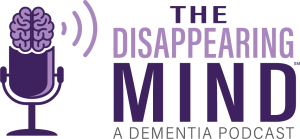We often hear that giving up coffee can help us to age gracefully. However, do you know that the benefits of drinking coffee override that perception? It has been found that a dose of morning caffeine can help prevent many age-related issues such as heart problems and dementia. Here is what you need to know about this interesting topic.
Improves Heart Health
Research suggests that coffee may improve heart health. A recent study has also offered clarity on this subject. Researchers studied heart attacks in mice to determine how caffeine changed the works of the cardiovascular system. The team found that caffeine did have an influence on the movement of p27 which is a protein found in the heart. P27 supported the movement of the heart’s endothelial cells which line the blood vessels. This shows that having a daily cup of coffee can help to slow down the effects of time on your cardiovascular system.
Other Health Benefits of Caffeine
Caffeine is an antioxidant. This means that it has an ability to fight age-related oxidative damage that can help improve health in various ways especially with age. The following are several other potential benefits of drinking coffee:
- Improves Cognitive Functions: Caffeine may help prevent mild cognitive impairment that is age-related. It may also delay or prevent dementia.
- Lowers Risk of Stroke: A study has found that drinking just one cup of coffee per week could cut down the risk of stroke and heart failure.
- Supports Longevity: Research has shown that people who are regular coffee drinkers have had a lower overall risk of death.
- Improves Mental Health: Coffee boosts our mood to help us feel more alert and motivated. It may also lower down the risk of mental health problems like depression.
- Lower Risks of Cancer: A study has found that drinking four cups of coffee per day may reduce the risk of developing oral cancer.
Tips for Healthy Caffeine Consumption
For most adults, consuming 400 milligrams of caffeine a day is safe. This equates to approximately four cups of coffee. Most research done on caffeine consumption is inclined towards moderate coffee consumption which is around three to five cups a day. People who take echinacea, ephedrine, and theophylline may be more vulnerable to the effects of caffeine. Always consult your doctor to determine if there are any potential interactions. For some people, drinking a moderate amount of coffee is already enough to cause health issues whereas for others, they can be totally fine even with heavy caffeine consumption. So, always listen to your body. You may experience caffeine-related side effects if you suffer from the following conditions:
- Insomnia
- Migraines
- Muscle tremors
- Frequent urination or urinary incontinence
- Restlessness or anxiety
- Stomach problems
The health benefits of caffeine, especially for older adults, may come as a shock. Aging is indeed full of surprises that we just need to naturally find out when we eventually reach that stage. The best way to age gracefully is to maintain a healthy diet and stay physically active as we age.








